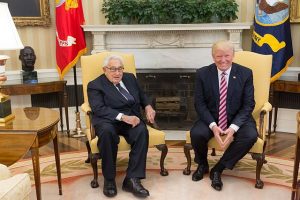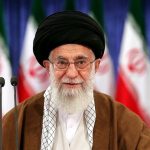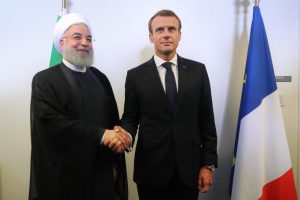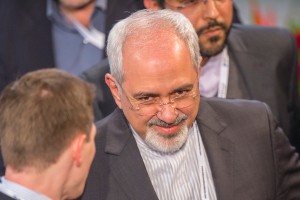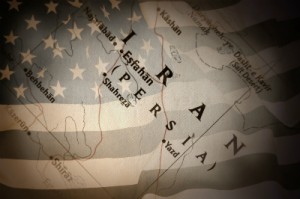 Former Iran-desk State Department staffer Reza Marashi and journalist Sahar Namazikhah remind us that Iran’s influnetial Ministry of Intelligence and Security (MOIS) has publicly recognized the benefits of negotiating with the US to avert a military conflict through a report that’s available on their website. “To that end, the Intelligence Ministry can play a role in planting ideas within the minds of Iran’s top decision-makers,” write Marashi and Namazikhah, adding that the MOIS report directly “articulates why President Obama is different than Israel”:
Former Iran-desk State Department staffer Reza Marashi and journalist Sahar Namazikhah remind us that Iran’s influnetial Ministry of Intelligence and Security (MOIS) has publicly recognized the benefits of negotiating with the US to avert a military conflict through a report that’s available on their website. “To that end, the Intelligence Ministry can play a role in planting ideas within the minds of Iran’s top decision-makers,” write Marashi and Namazikhah, adding that the MOIS report directly “articulates why President Obama is different than Israel”:
The primary obstacle? According to the MOIS, it is Israel – but not for the reasons many might assume. Rather than ideology, Iran’s Intelligence Ministry sees geopolitics as the driving force: “[Israel is concerned that] the balance of power in the region will be against the Zionist regime” and it therefore “considers enrichment a threat to its national security and wants to destroy Iran’s nuclear facilities”.
The way that Iran’s Intelligence Ministry distinguishes between Obama and Israel is important. As a key source of information in the Iranian system, the MOIS has said that Obama shows he is not willing to rush into war – and it has given him de facto credit for it. To that end, policymakers in Washington should carefully study this publication as a potential opening from Iran.
Gary Sick, an acute observer of US-Iranian relations for more than three decades who served on the National Security Council staff under president Ford, Carter and Reagan, meanwhile argues that the path to middle east peace goes through Tehran. But even if conditions are ripe for a serious attempt at reaching a deal — which President Obama seems interested in — both sides will need to make concessions:
The United States and its allies will have to accept a measure of Iranian domestic enrichment of uranium. Iran will have to accept limits on its entire nuclear infrastructure, subject to intrusive inspections and monitoring. Iran will need to document the history of its nuclear program, and the West will need to remove sanctions. All of this must happen in a step-by-step process with safeguards and verifications at each stage.
Writing in Al-Monitor, Banafsheh Keynoush argues that Iran’s hardliners are ready to engage, but won’t submit without serious incentives. Indeed, as Iran scholar Farideh Farhi points out, the key to moving the diplomatic process forward and avoiding a military conflict is flexibility on both sides:
Unless Khamenei and company are given a way out of the mess they have taken Iran into (with some help from the US and company), chances are that we are heading into a war in the same way we headed to war in Iraq. A recent Foreign Affairs article by Ralf Ekeus, the former executive chairman of the UN special Commission on Iraq, and Malfrid-Braut hegghammer, is a good primer on how this could happen.
The reality is that the current sanctions regime does not constitute a stable situation. First, the instability (and instability is different from regime change as we are sadly learning in Syria) it might beget is a constant force for policy re-evaluation on all sides (other members of the P5+1 included). Second, maintaining sanctions require vigilance while egging on the sanctioned regime to become more risk-taking in trying to get around them. This is a formula for war and it will happen if a real effort at compromise is not made. Inflexibility will beget inflexibility.

